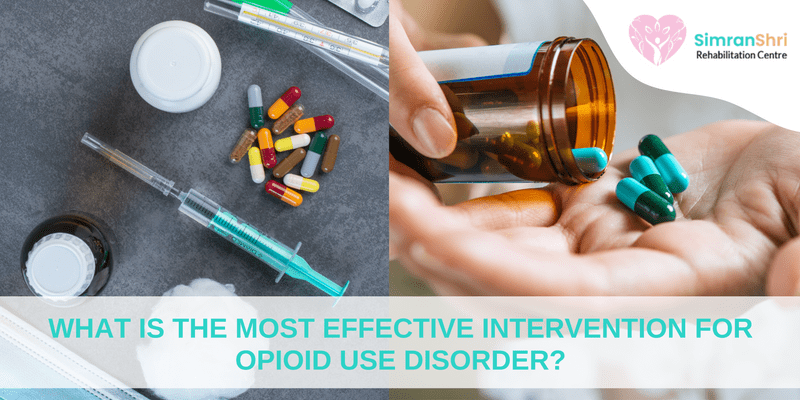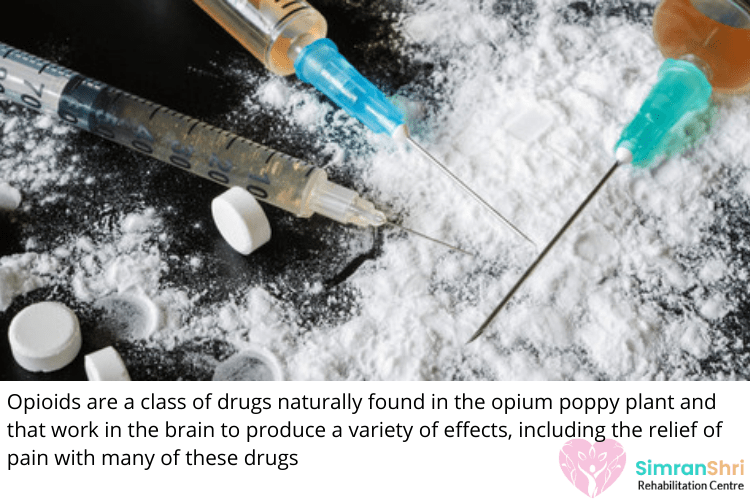

Opioids are prescription medicines used as painkillers or as "street drugs" such as heroin. The pain-relieving and "high" effects of opioids make them addictive. The individual starts craving for its regular use and develops an addiction. Opioid use disorder is a complex medical condition. It can result in long-term changes in the structures and functions of the brain. Fortunately, opioid use disorder treatment can help save the individual from severe health conditions associated with opioid addiction. It takes more than willpower to break free from opioid addiction. Medications and counselling help individuals combat addiction effectively and help prevent relapse.
Learn more about the opioid use disorder symptoms, withdrawal symptoms and opioid use disorder treatment guidelines to help those who need de-addiction. Early treatment is clinically proven to result in long-lasting recovery.

Opioid use disorders are diagnosed with the help of mental health professionals. Opioid use disorder symptoms cannot be seen in an individual immediately, but opioid intake over time results in the following-
● Uncontrollable cravings
● The inability to control opioid use
● Drowsiness
● Weight loss
● Changes in sleep habits
● Frequent flu-like symptoms
● Lack of hygiene
● Decreased libido
● Changes in exercise habits
● Stealing from family, friends or businesses
● Isolation from family or friends
● New financial difficulties
People often confuse opioid dependence and addiction; here is the difference between the two:
● Opioid dependence is a physiological response experienced by an individual on discontinuing or decreasing the opioid intake. These responses are withdrawal symptoms such as increased heart rate, diarrhoea, restlessness, muscle aches and pain.
● Opioid addiction is when an individual continues compulsive opioid intake despite the negative consequences. It involves neurological, environmental and genetic factors that lead to this compulsive opioid intake.
Various factors determine the duration and intensity of the opioid withdrawal symptoms. There is a common progression of symptoms. Some common withdrawal symptoms that begin on the first day of drug consumption stoppage include:
● Restlessness
● Lacrimation
● Sweating
● Yawning
● Muscle ache
● Anxiety
● Running nose
● Inability to sleep
These symptoms can intensify with the end of the first day and also include:
● Stomach cramps
● Nausea
● Rapid heart rate
● Diarrhoea
● Goosebumps
● Blurred vision or dilated pupils
● High blood pressure
Withdrawal symptoms can be dangerous, and it's advisable to seek help from the best detoxification treatment centre in India for safe and medically supervised withdrawal management.
Best Substance Use Disorder Treatment involves medications and psychotherapy. Medicines modify the brain chemistry that contributes to addiction and comorbid conditions. These also relieve withdrawal symptoms and block the euphoric effects of opioids. Therapies help individuals learn about their triggers to manage them and prevent relapse. Let's closely look at these components of opioid use disorder treatment.
The FDA approved drugs commonly used in the treatment are as follows-
Methadone eases the withdrawal symptoms and reduces the urge for opioid intake. It does not evoke pleasure once individuals develop tolerance to its effects.
Buprenorphine: Blocks the effects of opioids reduces the cravings and withdrawal symptoms.
Naltrexone: Prevents the euphoric feeling of opioid intake by blocking its effects.
These medications do not lead to addictions; they help reduce cravings and manage withdrawal symptoms.
Psychotherapy helps one deal with personal or social issues that lead to addictions or contribute to their severity. These include:
● Self-worth
● Problems at professional or personal front
● Individuals around using drugs or alcohol
The therapies that are used in the treatment are as follows:
● Cognitive-behavioural therapy helps identify the underlying cause of addiction; once individuals recognise them, the therapy further teaches them healthy coping materials.
● Contingency management motivates the individual via incentives or rewards to stay focused on their treatment.
● A motivational interview helps one identify the cause of behavioural change reluctance.
● Family therapy strengthens the treatment by the support of loved ones.
● 12-step programs and meetings ensure long-lasting recovery.
If you or your loved ones are struggling with opioid addiction in any form, you are not alone. We at SimranShri rehabilitation centre are here to fight this battle with you. Get in touch with our psychologists today to know more about opioid addiction and the best heroin addiction treatment.